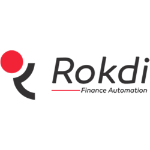TechnologyCounter provides genuine, unbiased real user reviews to help buyers make informed decisions. We may earn a referral fee when you purchase through our links, at no extra cost to you.
List of 15 Best Website Optimization Tools
Showing 1 - 15 of 52 productsDorik is a solution for all your software needs. With its innovative features and user-friendly interface, it offers a seamless experience for creating professional websites and web applications. Dorik sets a new standard in the world of software, ma...Read Dorik Reviews
SEOprofiler is a online marketing tool that helps businesses improve their websites search engine rankings. With user-friendly features analytics, SEOprofiler allows you to optimize your website, track your progress, and stay ahead of the competition...Read SEOprofiler Reviews
Keyword Rank Checker is a versatile tool that accurately is a ly tracks the ranking of your keywords on search engines. With the ability to monitor your keyword performance in real-time, this innovative software empowers businesses and marketers to m...Read Keyword Rank Checker Reviews
PRO Sitemaps is a tool for creating professional sitemaps! Our innovative software makes it easy to generate detailed sitemaps for your website, allowing you to improve search engine optimization and user navigation. Say goodbye to manual sitemap cre...Read PRO Sitemaps Reviews
GTmetrix is a powerful, user-friendly tool designed for website owners and developers to optimize website performance. With a sleek interface and detailed analysis, GTmetrix allows users to easily identify and fix issues that may be slowing down thei...Read GTmetrix Reviews
BlogVault - Your Ultimate Backup and Security Solution for WordPress. Say goodbye to the stress and worries of losing your valuable data or falling prey to cyber attacks. With BlogVault, you can rest assured that your website is safe and secure with...Read BlogVault Reviews
SimilarWeb Pro is a and innovative analytics tool that provides businesses with valuable insights and competitive intelligence for their digital strategy. With in-depth data features, SimilarWeb Pro helps drive informed decisions and fuel growth in t...Read SimilarWeb Pro Reviews
ROKDI is a billing software with integrated features for GST and advance billing. It offers a variety of customizable reports and returns, making it a comprehensive solution for all billing needs. Say goodbye to the hassle of multiple tools and swit...Read Rokdi Reviews
NowFloats Boost360 is a software designed to elevate your online presence and boost your business growth like never before. With its innovative features and user-friendly interface, it empowers small and medium enterprises to effectively manage their...Read NowFloats Boost360 Reviews
Chinafy is a solution for global businesses looking to expand their reach into the Chinese market. Our state-of-the-art software utilizes advanced technology to seamlessly optimize websites, making them lightning-fast and fully functional in China. S...Read Chinafy Reviews
MetaRouter is a reliable and swift customer data management software aimed at server-side functionality. Designed to optimize efficiency, compliance, and management, it limits third-party access to customer data while enhancing the speed and precisio...Read MetaRouter Reviews
SiteAnalyzer is a website analysis tool that provides in-depth insights for optimizing your websites performance. From analyzing SEO to identifying technical issues, SiteAnalyzer offers a user-friendly interface that helps businesses and website owne...Read SiteAnalyzer Reviews
FileBird is a solution for organizing and managing your files and folders effortlessly. With its user-friendly interface features, FileBird simplifies the task of storing and accessing your documents, photos, and videos. Say goodbye to clutter and co...Read FileBird Reviews
DebugBear is a is a website monitoring tool designed to help businesses identify and fix technical issues on their websites. With its user-friendly interface features, DebugBear streamlines the process of website debugging, providing valuable insight...Read DebugBear Reviews
HotelHood, the ultimate software solution for hotels of all sizes. Built with the needs of hoteliers in mind, HotelHood offers a plethora of user-friendly features to streamline everyday tasks and boost efficiency. Say goodbye to tedious manual proce...Read HotelHood Reviews
- What Is Website Optimization Tools?
- Top Reasons Why Businesses Need Website Optimization Tools?
- What Are the Top Key Features of Website Optimization Tools?
- What Are the Top Benefits of Website Optimization Tools?
- What Are the Steps to Choose the Right Website Optimization Tools?
- What Are the Types of Website Optimization Tools for Different Industries?
- What Are the Technology Trends for Best Website Optimization Tools?
- What Are the Deployment Options for Website Optimization Tools?
What Is Website Optimization Tools?
Website optimization tools are items that are designed to help websites function better. These technologies monitor user experience, assess website page load times, analyse content delivery speeds, track hosting uptime, and provide insights into how quickly website material is delivered.
Site optimization tools aim to improve user experience and make websites perform more efficiently. Website owners can uncover any faults that are causing their website to perform slowly by employing website optimisation tools.
The web page optimization tools can be used to assess the efficacy of various server setups, identify and correct coding issues that contribute to load speeds, and assess the performance of various content delivery networks.
They can also provide information about users' surfing habits by parsing data on pages viewed, time spent on pages, and other metrics. Website optimization tools are an essential component of website administration.
Businesses can ensure their websites remain at the top of search engine results and continue to provide an optimal experience to their visitors by continuously analysing website performance and making improvements to sections of the website that require it.
Top Reasons Why Businesses Need Website Optimization Tools?
1. Understand user behavior: Website optimization tools enable businesses to obtain insight into how users interact with their website, allowing them to better tailor marketing and content to user needs.
2. Increased website traffic: Potential clients are more likely to find optimised websites. Web optimization tools can assist businesses in improving their website's search engine results and/or social media presence.
3. Better user experience: Site optimization tools may track user interaction, site performance, and page load times. Businesses can improve user experience by tracking these indicators and making changes to their website design as needed.
4. Reduced bounce rate: The percentage of visitors that depart a website shortly after visiting due to dissatisfaction or a poor website experience is referred to as the bounce rate. web optimisation tools give organizations with the data they need to identify user experience issues and improve website bounce rates.
5. Increased conversion rates: Companies can utilise website optimization tools to discover web page parts that need to be improved. Content, page style, loading speed, and call-to-actions can all be optimised to boost website conversions.
6. Increased customer retention: Businesses can engage customers, increase their trust in the organisation, and encourage them to stick around by optimising website content. Businesses can use optimization tools to find content opportunities for increased client retention.
7. Improved website performance: Optimizing website content and design can improve page load speeds and help increase customer satisfaction.
8. Track user engagement: Businesses can use site optimization tools to track user goals and activities on their websites, enabling them to adjust their strategies if necessary.
9. Monitor Key Performance Indicators (KPIs): Optimization tools enable businesses to monitor, track, and measure key performance indicators such as reach, visitors, page views, and conversion rates. Businesses can identify problem areas and opportunities for improvement.
10. Automation capabilities: Some optimization tools offer automated functionalities such as adjusting images, uploading content, and managing URLs. This can help reduce manual tasks and improve webmasters’ workflow.
11. Identify UX issues: User experience plays a crucial role in customer retention. Optimization tools can help businesses measure user reviews, monitor customer flow, and identify UX issues that could lead to website abandonment.
7. Improved website performance: By optimising website content and design, you may boost page load speeds and client satisfaction.
8. Track user engagement: Companies can utilise online website optimization tools to monitor user goals and activities on their websites, allowing them to alter their strategy as needed.
9. Track and measure Key Performance Indicators (KPIs): optimization tools allow businesses to track, monitor, and measure key performance indicators such as reach, visits, page views, and conversion rates. Businesses can identify issue areas as well as chances for growth.
10. Automation capabilities: Some optimization tools include automatic features such as image resizing, content uploading, and URL management. This can assist webmasters decrease manual duties and improve their workflow.
11. Identify UX issues: User experience is critical to client retention. optimization tools can assist organisations in measuring user evaluations, tracking consumer flow, and identifying UX flaws that may result in website abandonment.
12. Mobile optimization: Businesses can use mobile optimization solutions to guarantee that their websites are optimised and functional across all mobile devices. This ensures that users have a consistent experience and can access the website from any device.
13. Personalize webpages: Use optimization tools to personalise webpages in order to target distinct categories of clients and generate leads.
14. Analyse competitors: Businesses can use site optimization tools to track competitor websites and learn about the methods they employ.
15. Increase marketing ROI: Optimised websites convert more effectively, resulting in higher marketing ROI.
What Are the Top Key Features of Website Optimization Tools?
1. Content Optimization: To boost website ranking, online website optimization tools analyse website content for keyword density, readability, structure, spelling, grammar, and other SEO metrics.
2. Site Speed: Web optimization tools evaluate the loading speed of a page to help detect and correct elements that slow down a website.
3. On-Page Optimization: To ensure SEO compliance, tools can provide thorough recommendations on optimising meta descriptions, page names, heading tags, and other on-page variables.
4. Site Structure: Tools check for broken links, detect crawl issues, identify duplicate content pages, and ensure adequate internal linking structure.
5. Image Optimization: Image optimization technologies can be used to optimise and compress photos for faster website loading.
6. Competitor Analysis: An online website optimization tools provide information on how your competitors' websites are optimized and ranked.
7. Mobile optimization: site optimization tools can detect and identify difficulties with mobile website performance.
8. Analytic and Reporting: Website optimization solutions provide detailed analytical reports that provide insights into your website's performance.
What Are the Top Benefits of Website Optimization Tools?
1. Automated Website Diagnostics: Web page optimization tools can provide automated website diagnostics to identify areas for improvement such as page speed, broken links, HTML errors, invalid URLs, JavaScript errors, and so on.
2. Increased Search Engine Visibility: Using the best website optimization tools, it is possible to improve a website's visibility on search engines such as Google, Bing, and Yahoo. This results in higher organic search results and an overall better web presence.
3. Improved User Experience: Website optimisation tools help to improve user experience by providing information on which pages take the longest to load, how users engage with the website, and analytics data on various page elements.
4. Better Conversion Rate: Site optimization tools can help you increase your conversion rate by giving predictive analytics that identify places where potential clients are leaving.
5. Optimized Content Delivery: Web optimisation tools can assist in providing visitors with optimised material. This can aid in decreasing page loading times and increasing overall consumer satisfaction.
6. Fully Optimized Code: Web optimisation tools allow for fully optimised code. This guarantees that the page loads faster and that just the essential CSS and JavaScript is loaded, reducing page size and increasing loading speed.
7. Improved Page Performance: Web optimisation tools can aid in the enhancement of overall page performance. This includes providing information about page performance, the influence of different page elements on overall loading time, and flagging pages with sluggish loading times.
What Are the Steps to Choose the Right Website Optimization Tools?
Step 1: Determine your website optimisation goals and objectives.
Step 2: Assess the current website performance, traffic, and user experience metrics.
Step 3: Compare your website's performance to that of your competitors.
Step 4: Research and compare available web optimization tools features and pricing.
Step 5: Choose website optimisation tools that are within your budget and meet your goals.
Step 6: Test and review the best website optimization tools you've chosen, and fine-tune the configuration as needed.
Step 7: Track progress towards targets by monitoring website performance over time.
Step 8: Take action to improve website performance based on analytics information.
What Are the Types of Website Optimization Tools for Different Industries?
The types of online website optimization tools for different industries depend on the needs of the particular business. Here are some common types of tools used for website optimization:
1. Analytics tools: Analytics tools provide an in-depth view of website performance, such as page performance, user engagement, and user path.
2. Content Delivery Network (CDN): CDNs aid in the faster delivery of webpages and media. They are especially handy for websites with a lot of traffic and large media files.
3. SEO tools: SEO tools such as keyword and link analysis tools aid in the optimisation of websites for search engines.
4. Page speed tools: Site speed is critical for SEO and user experience, and tools like Google's PageSpeed Insights can assist in making websites speedier.
5. Split testing tools: Split testing is the process of comparing the performance of different versions of a website. Tools like Google Optimise and Optimizely can help to automate and speed up this process.
6. A/B testing tools: A/B testing is a subset of split testing and is used to compare the performance of different versions of a single page. Tools like VWO and Convert aid in the automation of the A/B testing process.
7. Image optimization tools: Image optimisation technologies help to reduce the size of website photos without affecting image quality. Image optimisation tools such as Adobe Photoshop and TinyPNG can be useful.
8. Heatmap tools: Heatmap tools aid in the tracking of user experience on websites and the identification of difficulties with user journeys. Tools like Crazy Egg and HotJar can assist in tracking user behaviour and identifying trouble areas.
What Are the Technology Trends for Best Website Optimization Tools?
There are a few important technical developments that stand out when it comes to the best website optimization tools. For starters, artificial intelligence (AI) and machine learning are becoming increasingly prevalent in website optimisation solutions.
AI enables the rapid and fast analysis of massive data sets, providing important insight into page performance and visitor behaviour. Machine learning enables automated optimisation procedures by learning from website visitor behaviour and making modifications as needed.
Second, the use of data analytics to better understand and forecast consumer behaviour is becoming more significant. Website owners can optimise page content depending on analytics data such as page views, bounce rates, and more by employing web optimization tools like as Google Analytics and Omniture.
Third, the usage of content web page optimization tools to boost visitor engagement and page conversions is getting increasingly prevalent. These tools can assist website owners in identifying successful pages as well as possibilities to improve page performance.
Finally, the significance of website security should not be underestimated. Website owners can use security measures such as firewalls and advanced malware protection to safeguard their websites from cyber threats while also providing a safe browsing experience for their visitors.
These are only a few of the most important technological advances in website optimisation tools. More advanced and specialised tools will become accessible as technology advances, allowing website owners to maximise page performance and conversions.
What Are the Deployment Options for Website Optimization Tools?
The deployment options for website optimization tools will largely depend on the specific website optimization tool being used. Common deployment options include:
1) Cloud-based Platform: Users can quickly put their online website optimization tools on a cloud platform, allowing for quick setup and maintenance.
2) Self-hosted Server: This option needs users to install and maintain their web optimization tools manually on their own server.
3) Software as a Service (SaaS): SaaS allows users to deploy and manage website optimisation solutions without having to manage any hardware or software.
4) Managed Hosting: With this option, consumers can employ a managed hosting company to deploy and administer their website optimisation solutions.
5) Dedicated Hosting: With this option, users can host their website optimisation tools on dedicated servers, giving them complete control over setting and maintenance.
The optimal deployment choice for web page optimization tools will be determined by the user's individual needs and budget.















